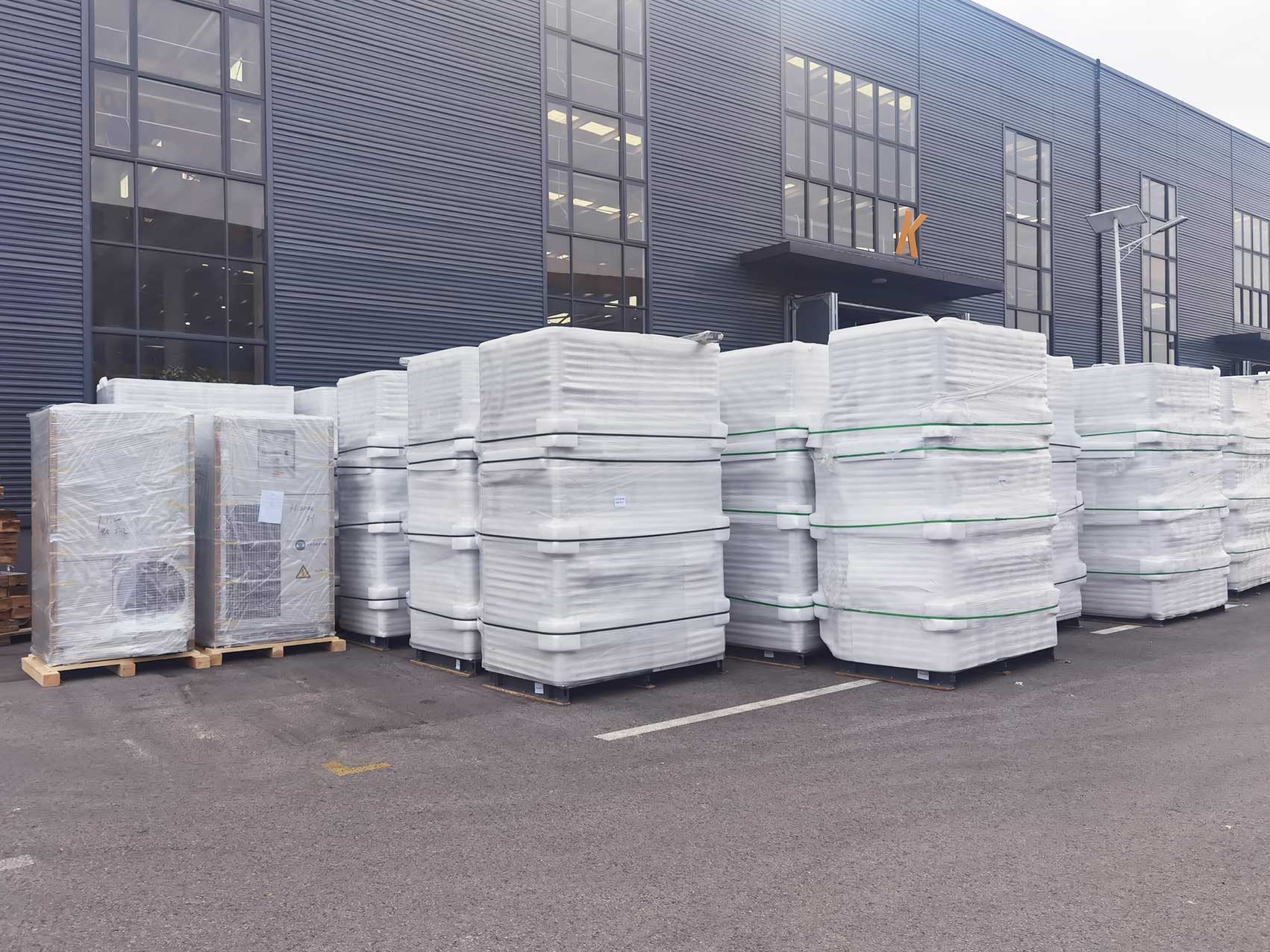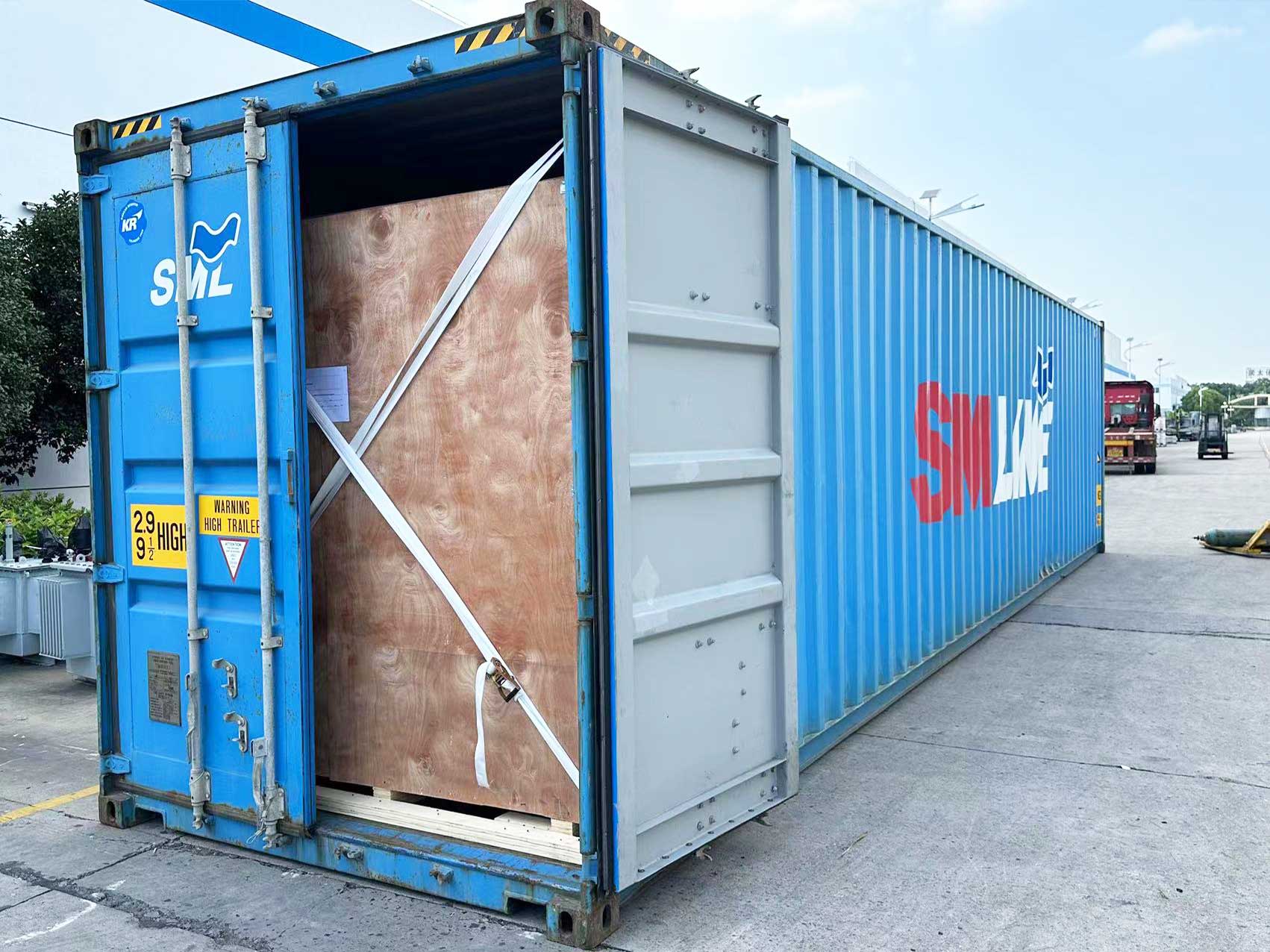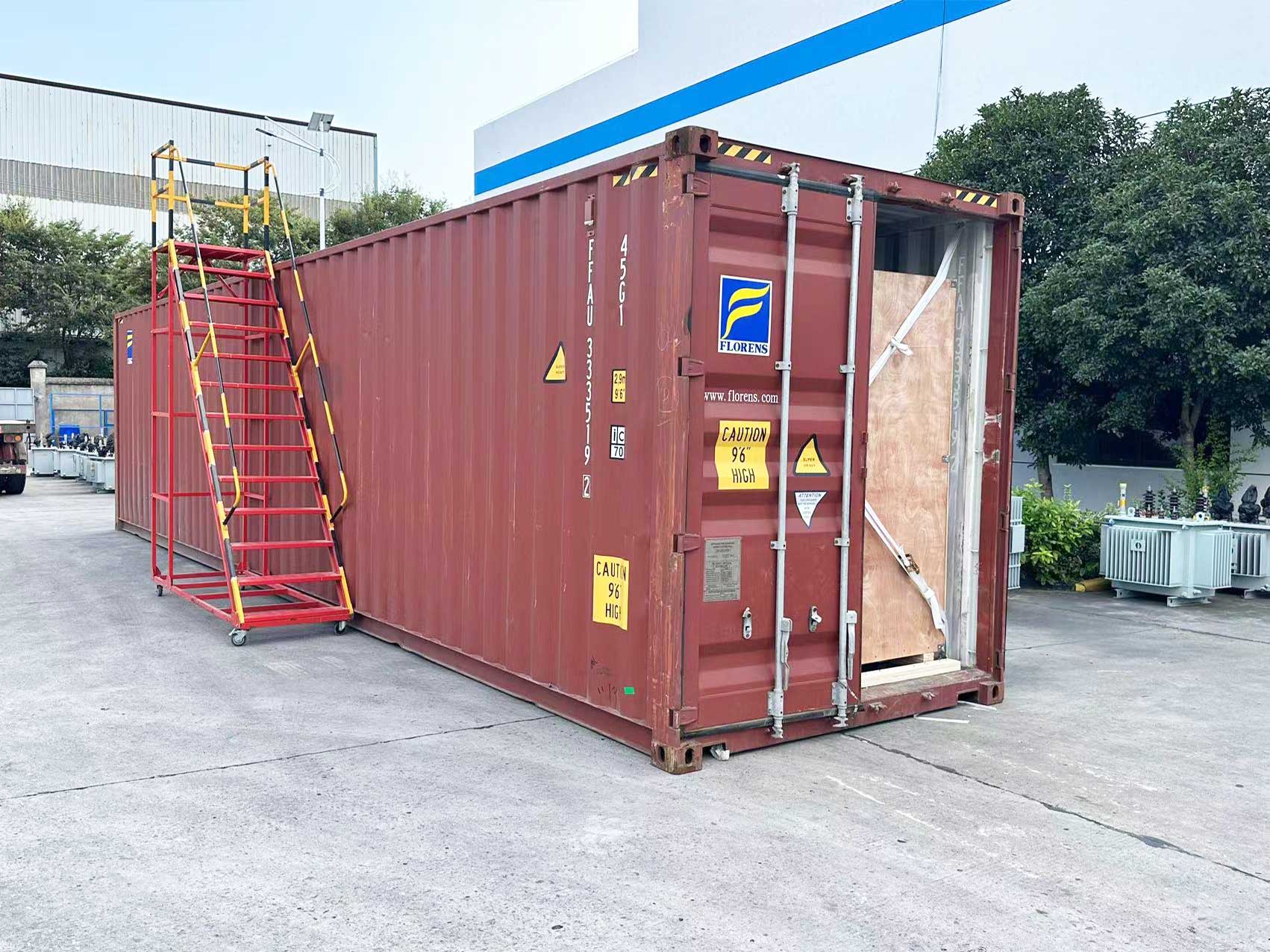Distribution Transformer
Offer custom-designed products with varying voltage levels to meet the requirements of different national power grids and provide OEM services.
Distribution Transformer For Sale
Our distribution transformers utilize advanced technology to maximize high-voltage power step-down efficiency, minimizing energy transmission losses.
It is essential for stepping down high voltage electricity from substations to lower voltages suitable for residential, commercial and industrial use.
Main Parameters
Power rating: 10-20000 kVA
Primary voltage: 6-11 kV
Secondary voltage: 400V; 690V
Working Conditions
Altitude should not exceed 1000 meters
Operating environment temperature should be between -25℃ and +40℃
The relative humidity should not exceed 90%(+25℃)
The vertical inclination does not exceed 5°.
The outdoor wind speed does not exceed 35m/s.
Tengyi Distribution Transformer Advantages
Premium Low-Voltage Design
Utilizing low-voltage copper foil winding with high-quality Class A insulation materials results in superior dielectric strength and long-term reliability.
High Mechanical Strength
The transformer’s low leakage flux and robust construction provide exceptional mechanical strength and superior short-circuit withstand capability.
Advanced Core Structure
The 45° full-skew stepped lamination core structure minimizes core losses, reducing noise and improving overall energy efficiency.
Superior Lightning Protection
Tengyi utilizes high-voltage copper strip winding technology that significantly enhances the transformer’s resistance to lightning strikes, ensuring reliable operation in extreme weather, even in stormy conditions.
Optimized Core Material
The use of high-quality cold-rolled grain-oriented silicon steel from reputable sources (Baosteel, Wuhan Iron and Steel) ensures low core losses, resulting in enhanced energy efficiency and reduced operating costs.
Superior Winding Insulation
The combination of copper foil (low voltage) and specialized insulated copper wire (high voltage) windings, along with superior insulation materials, ensures excellent dielectric strength and prevents insulation breakdown.
10 kV, 1600kVA Distribution Transformer Design

Specification
| Capacity | Rated voltage & Off-load tapping | Vector GroupSymbol | NO-load loss(W) | Load loss(W) | NO-load current(%) | Short circuit impedance(%) | ||
| H.V(kv) | High pressure Tap range(%) | L.V(kv) | ||||||
| 30 | 11 10.5 10 6.3 6 | ±5% ±2×2.5% | 0.4 0.69 | Dyn11 Yyn0 | 100 | 630/600 | 1.5 | 4 |
| 50 | 130 | 910/870 | 1.3 | 4 | ||||
| 63 | 150 | 1090/1040 | 1.2 | 4 | ||||
| 80 | 180 | 1310/1250 | 1.2 | 4 | ||||
| 100 | 200 | 1580/1500 | 1.1 | 4 | ||||
| 125 | 240 | 1890/1800 | 1.1 | 4 | ||||
| 160 | 280 | 2310/2200 | 1 | 4 | ||||
| 200 | 340 | 2730/2600 | 1 | 4 | ||||
| 250 | 400 | 3200/3050 | 0.9 | 4 | ||||
| 315 | 480 | 3830/3650 | 0.9 | 4 | ||||
| 400 | 570 | 4520/4300 | 0.8 | 4 | ||||
| 500 | 680 | 5410/5150 | 0.8 | 4 | ||||
| 630 | 810 | 6200 | 0.6 | 4.5 | ||||
| 800 | 980 | 7500 | 0.6 | 4.5 | ||||
| 1000 | 1150 | 10300 | 0.6 | 4.5 | ||||
| 1250 | 1360 | 12000 | 0.5 | 4.5 | ||||
| 1600 | 1640 | 14500 | 0.5 | 4.5 | ||||
| 2000 | 1940 | 18300 | 0.4 | 5 | ||||
| 2500 | 2290 | 21200 | 0.4 | 5 | ||||
About Tengyi
We are a premier enterprise specialising in designing, manufacturing, and testing a wide array of transformers.
Our advanced production facility covers over 11,000 square meters and features a maximum lifting capacity of 240 tons, allowing us to achieve an impressive annual production capacity of 12,000 MVA.
We provide transformers suitable for voltage ranges from 52 to 800 kV, with power ratings from 20 to 600 MVA, and our auto-transformers can reach capacities of up to 1,000 MVA.
Global Cases

Distribution Transformer Operation in Kazakhstan

Distribution Transformer Installed in Ghana

Distribution Transformer Operation in Lybia

Box Type Distribution Transformer in Kenya
Customer Feedback
Ivan Kibona
– from Tanzania
We’ve been using these Tengyi distribution transformers for the past five years at our industrial facility, and they’ve consistently exceeded expectations.
They’re incredibly reliable, requiring minimal maintenance. We’ve experienced zero downtime due to transformer failures. We’re very satisfied with the quality and performance of these units.
★★★★★
Eng. Adiel Karima
– from Zimbabwe
The energy efficiency of these distribution transformers is truly impressive. Since switching to this new model, our energy bills have dropped considerably.
The reduced energy consumption is not only cost-effective but also contributes positively to our overall environmental sustainability goals. The transformer’s robust design and high-quality components clearly make a difference.
★★★★★
Distribution Transformer Workshop




Distribution Transformer Production Details




What Is a Distribution Transformer?
A distribution transformer (also called a power distribution transformer) is a critical component of electrical grids, stepping down high-voltage electricity from power stations to safer, usable low-voltage levels for end-users. Common applications include residential buildings, factories, and rural infrastructure.
Tengyi Distribution Transformer Key Features:
- Energy efficiency
- Custom for different demands
- Durability for industrial or harsh environments
Types of Distribution Transformers: Choosing the Right One for Your Needs
Dry Type Distribution Transformer
Ideal for indoor installations such as hospitals, data centers, and urban areas where fire safety is critical. These transformers use no oil, reducing fire risks and maintenance requirements. Their energy-efficient design makes them suitable for environments like schools or office buildings.
Overhead/Pole Mounted Transformer
Perfect for rural areas, temporary setups, and cost-effective outdoor power distribution. Lightweight and easy to install, they are widely used in agricultural regions or rural infrastructure projects.
Pad Mounted & Underground Transformers
Designed for urban infrastructure (parking lots, sidewalks) requiring flood resistance and noise reduction. Their compact, aesthetically pleasing design ensures they blend seamlessly into cityscapes while protecting against extreme weather conditions.
Specialized Types
- Submersible Transformer: Used in water-intensive environments like fish farms or mining operations to deliver power underwater.
- Three-Winding Transformer: Powers multiple voltage circuits simultaneously, making them ideal for industrial complexes requiring simultaneous low-, medium-, and high-voltage outputs.
- Amorphous Transformer: Reduces energy loss in high-load scenarios such as data centers or manufacturing plants, thanks to the non-crystalline core material.
Distribution Transformer Specifications: Voltage, Capacity, and Phase
Voltage Ratings
- Low Voltage (LV): 10kV/0.433V distribution transformers are standard for residential and small commercial use, stepping down power for homes and light commercial buildings.
- Medium Voltage (MV): 33kV/433V distribution transformers serve industrial facilities and power substations, efficiently managing medium-voltage power distribution.
Capacity Range
- Small Capacity (10–50 kVA): Ideal for rural grids, single-phase residential areas, and small businesses requiring minimal power.
- Medium Capacity (100–250 kVA): Fits medium-sized commercial buildings like offices, hotels, and retail spaces.
- Large Capacity (315–500 kVA): Required for heavy industrial operations such as factories, hospitals, and data centers with continuous high-load demands.
Phase Configuration
- Three-Phase Transformer: Powers motors and equipment in industrial settings, ensuring stable operation for machinery.
- Single-Phase Transformer: Used in areas with predominantly single-phase loads, such as rural homes or temporary construction sites.
How to Choose a Distribution Transformer?
Consider Your Application
- For residential buildings, prioritize low voltage distribution transformers (e.g., 10kVA distribution transformers) with noise-reduction features.
- In industrial facilities, select high voltage distribution transformers and energy-efficient models like amorphous core transformers.
Assess Energy Efficiency
Invest in energy efficient distribution transformers to reduce long-term operational costs, especially for high-load environments like data centers.
Maintenance and Lifespan
Choose transformers with durable cores (distribution transformer core) and robust windings to minimize downtime and maintenance needs.
Detailed Distribution Transformer Guide: Voltage, Capacities, and Ideal Applications by Scenario
By Voltage Rating
10kV Distribution Transformer
- Application Scenarios:
- Urban/Rural Power Grids: Step down 10kV to 0.4kV/0.22kV for residential areas, shops, and small factories.
- Industrial Plants: Supply power to low-voltage equipment (e.g., pumps, lighting, HVAC systems).
- Agriculture: Irrigation systems, farm equipment, and rural substations.
- Typical Capacities: 25kVA–630kVA (depends on load density).
- Examples:
- 25kVA 10kV/0.4kV: Single-family homes, small clinics.
- 315kVA 10kV/0.4kV: Shopping malls, community centers, medium-sized workshops.
11kV Distribution Transformer
- Application Scenarios:
- Industrial Parks: Power high-voltage motors (6kV/10kV), electric furnaces, and compressors.
- Commercial Complexes: Supply power to elevators, escalators, and large HVAC systems.
- Mining/Oil Fields: Underground machinery, oil extraction pumps, and drilling rigs.
- Typical Capacities: 100kVA–2,500kVA (higher capacities for industrial use).
- Examples:
- 100kVA 11kV/0.4kV: Small processing plants, gas stations.
- 250kVA 11kV/0.4kV: Medium-sized manufacturing facilities, data center UPS systems.
11kV 433V Distribution Transformer
- Application Scenarios:
- Specialized Industries: Equipment in Europe/regions using 433V (e.g., motors, compressors).
- Maritime/Shipping: Shipboard power systems, port cranes, and offshore platforms.
- Retrofit Projects: Upgrade legacy 433V systems in older urban areas.
- Typical Capacities: 50kVA–500kVA (match load requirements).
- Examples:
- 200kVA 11kV/433V: Chemical reactor motors, subway traction power systems.
By Capacity
25kVA–50kVA
- Application Scenarios:
- Residential: Single-family homes, villas, or apartment complexes.
- Small Businesses: Hair salons, cafes, printing shops.
- Agriculture: Greenhouse lighting, small water pumps.
- Common Voltages: 10kV/0.4kV or 380V/0.22kV.
50kVA–100kVA
- Application Scenarios:
- Commercial Spaces: Stores, restaurants, supermarket refrigeration units.
- Office Buildings: Floor power panels, emergency lighting.
- Public Infrastructure: Streetlights, park billboards.
- Common Voltage: 10kV/0.4kV.
100kVA–250kVA
- Application Scenarios:
- Medium-Sized Factories: Production line motors, air compressors, packaging machines.
- Hospitals/Schools: Surgical rooms, classroom lighting, computer labs.
- Data Centers: Server racks (requires UPS integration).
- Common Voltages: 10kV/0.4kV or 11kV/0.4kV.
250kVA–630kVA
- Application Scenarios:
- Heavy Industry: Steel rolling mills, cement kilns, port gantry cranes.
- Large Commercial Complexes: Shopping malls, hotel HVAC systems.
- Regional Substations: Power distribution hubs for multiple neighborhoods.
- Common Voltage: 10kV/0.4kV or 11kV/0.4kV.
Key Selection Guidelines
Voltage Matching:
- 10kV: Ideal for end-of-line distribution in urban/rural grids (wide coverage but higher losses).
- 11kV: Better for short-distance, high-power industrial applications (reduces voltage drop).
Capacity Calculation:
- Formula: Transformer Capacity≥3×Voltage (kV)Total Load (kW)×1.2 (safety margin).
- Example: For a 50kW three-phase load at 0.4kV:
1.732×0.450,000≈72kVA→Choose 100kVA.
- Example: For a 50kW three-phase load at 0.4kV:
Environmental Considerations:
- Oil-Immersed (ONAN): Outdoor use (e.g., farms, roads).
- Dry-Type (ODAF/OFAF): Indoor use (e.g., malls, hospitals) for fire safety.
Typical Use Cases
| Transformer Specification | Application | Load Type |
| 10kV/0.4kV 315kVA | Shopping mall | Central AC, store lighting, food prep |
| 11kV/0.4kV 250kVA | Cement plant | Roller mill motors, dust collection |
| 11kV/433V 200kVA | Chemical factory | Reactor motors, pump systems |
| 10kV/0.4kV 100kVA | Community hospital | MRI machines, operating room lights |
Applications of Distribution Transformers
Residential Buildings rely on single-phase pad mounted transformers (10–250 kVA) to deliver stable, low-voltage power while minimizing noise for comfort.
Commercial Complexes often use three-phase overhead transformers (100–500 kVA) to support high-load operations like lighting systems and HVAC equipment, prioritizing energy efficiency.
Industrial Facilities require amorphous three-phase transformers (315–500 kVA) to handle heavy machinery and power-intensive processes, with features like harmonic resistance and short-circuit withstand capability.
Rural Infrastructure benefits from pole-mounted transformers (10–50 kVA) due to their cost-effectiveness and weather resistance, making them ideal for areas with limited access to maintenance services.
| Scenario | Recommended Transformer Type | Key Considerations |
| Residential Buildings | Single-phase pad mounted transformers (10–250 kVA) | Noise control, low voltage output |
| Commercial Complexes | Three-phase overhead transformers (100–500 kVA) | High load capacity, energy efficiency |
| Industrial Facilities | Amorphous three-phase transformers (315–500 kVA) | Harmonic resistance, short-circuit withstand |
| Rural Infrastructure | Pole-mounted transformers (10–50 kVA) | Cost-effectiveness, weather resistance |
What Is A Three Winding Distribution Transformer?
A three-winding transformer is a specialized power transformer featuring three independent windings (primary, secondary, and tertiary) designed for multi-voltage power systems or complex load distribution scenarios. Compared to traditional dual-winding transformers, it offers greater flexibility in power supply but comes with higher structural complexity and cost.
Core Structure and Working Principle
Three Independent Windings
Each winding connects to different voltage levels (e.g., 110kV/35kV/10kV):
- Primary winding: Inputs from the power grid or generator.
- Secondary winding: Outputs for medium-voltage loads.
- Tertiary winding: Supplies low-voltage equipment or isolated circuits.
Voltage ratios between windings depend on the turns ratio.
Common Connection Methods
Winding configurations use star (Y) or delta (Δ) patterns, forming various connection groups (e.g., YNyn0, Yd11):
- YNyn0:
- High-voltage and low-voltage windings in star (Y) configuration.
- Neutral points directly grounded.
- Yd11:
- High-voltage winding in star (Y), low-voltage in delta (Δ).
- 30° phase shift between windings for harmonic suppression.
Main Application Scenarios
Power System Hubs
- Power Plants:
- Step up generator output (e.g., 10kV) to transmission voltages (e.g., 220kV/500kV).
- Simultaneously power plant auxiliary equipment (e.g., lighting, control systems) at low voltage (e.g., 400V).
- Regional Substations:
- Interface between transmission (e.g., 220kV), distribution (e.g., 110kV), and local networks (e.g., 35kV).
Industrial Distribution
- Large Factories:
- Supply high-voltage motors (e.g., 6kV) and low-voltage control systems (e.g., 380V).
- Isolate factory internal grids from external supplies.
- Data Centers:
- Provide multi-voltage backups (e.g., 400V/230V) for redundancy.
Specialized Applications
- Railway Systems:
- Isolate traction power (e.g., 27.5kV) from station loads (e.g., 10kV).
- Offshore Platforms:
- Integrate platform internal power (e.g., 440V) with land-based transmission (e.g., 110kV).
Advantages and Challenges
| Advantage | Challenge |
|---|---|
| Multi-functional: Supports multiple voltage conversions and loads. | Complex Structure: Higher manufacturing costs due to multiple windings and core design. |
| High Reliability: Electrical isolation between windings prevents cascading failures. | Maintenance: Requires advanced protection systems (e.g., differential relays). |
| Energy Efficiency: Ideal for dense multi-voltage grids. | Lower Efficiency: Increased no-load losses due to inter-winding flux leakage. |
Why Choose Tengyi?
At Tengyi, we provide:
- Competitive pricing.
- High-quality distribution transformers for all applications.
- Tailor-made service. Request bespoke voltage, capacity, and phase configurations to meet unique project requirements.
Contact us today to request a distribution transformer quote or learn more about our power distribution transformer manufacturers!
Quote Tengyi Transformer
We offer custom-designed products with varying voltage levels to meet the requirements of different national power grids and provide OEM services.
Your main parameters of the transformer (voltage, capacity, loss and others)?
Your transformer operating environment (altitude, temperature, humidity, location, etc.)?
Other customized requirements (tap changer, color, oil pillow, etc.)?
Minimum order quantity: 1 unit

















